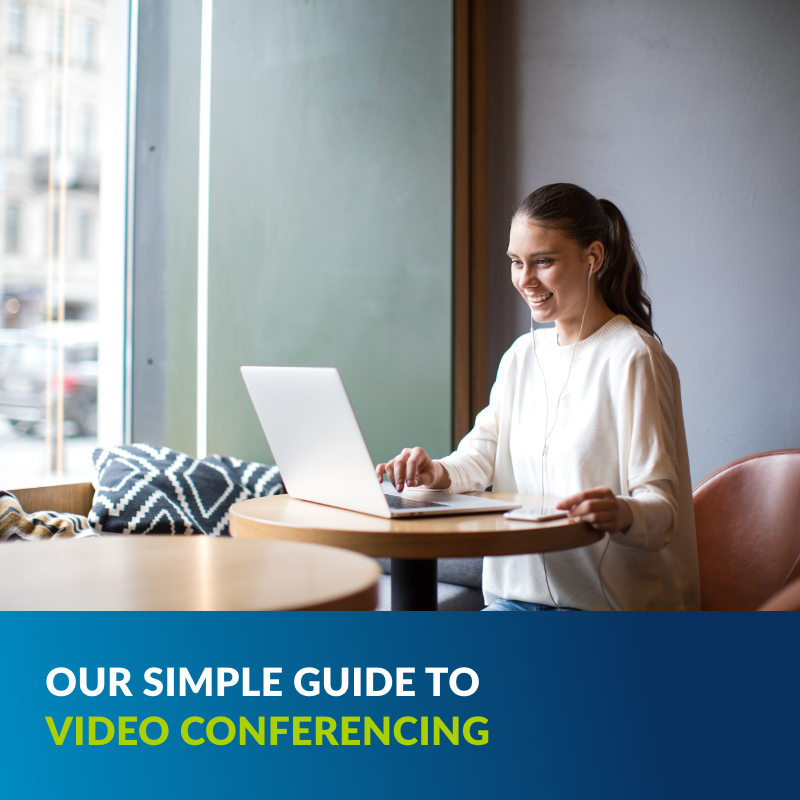Video conferencing has become a staple of the way we communicate on a day-to-day basis. Whether it is with family, friends, colleagues, or customers this service has proved invaluable over the last year. Even as normality returns it looks like a service that is here to stay. As with all technology though, there are challenges involved when trying to create a truly collaborative environment.
For businesses video conferencing essentially must function as a replacement for face-to-face conversation, with the added benefit of being accessible in any location. This means that both the tools you use to host these calls, as well as the process you carry out are up to scratch.
At Netcomms we are providers of a wide range of video conferencing services, so we know our stuff. We’ve put together this step-by-step guide of how you can make the most of your video calls. These best practices and the technology that enables them will help your team to thrive, wherever you work.
Plan your conferences
Organisation is crucial to any successful business operation. There aren’t many situations where you’d call a whole company meeting out of the blue, so why do the same with video calls? Scheduling in regular conference calls, whether on a daily or weekly basis keeps everyone in the know without being interruptive.
One of the ways to do this is through unified communications’ presence system. This service allows you to see which of your colleagues are available at any time. This gives you the confidence to call a colleague and know that they’ll answer. This feature makes planning simple and is also ideal for those situations when you need an answer very quickly.
Avoid unwanted guests
Video conferencing has grown rapidly as a form of communication. This popularity has led to some new risks emerging. Many businesses have unknowingly allowed bad actors to attend video conferences. In the best-case scenario this can be disruptive or rude, but at worst crucial data could be at risk.
The best way to prevent your conferences from being accessed is by being wary about who you share invite links to. We recommend never sharing links via social media and instead using private emails or your UC app’s instant messaging feature. You should also use a business grade video conferencing service, consumer grade products are generally less secure.
At Netcomms we offer a variety of UC services from leading providers. If you’re still using a consumer grade service, check out our range and get in touch.
Record the most crucial information
Video conferencing can have as much business utility as a traditional phone call with the right add-ons. There are plenty of interactions where it’s beneficial to record video conferences. From support training, to customer calls where a record of orders need to be kept. There are many situations where it’s great to have a face-to-face connection, and also keep a record of what was said.
Our UC platform allows you to record video conferences in a discrete, compliant and undisruptive way. Your recordings are then stored securely and can be easily sorted and accessed when you need them. This means you can easily keep a record of the data you need and can access it when you need to. It is also worth mentioning that this service is available for traditional audio calls as well.
Bring the conference to your customers
Video conferences have taken the world by storm but are still primarily used for internal communications; we believe that they have just as much use in customer facing roles. Here are some examples of how video calls can be introduced to customer processes and how the right technology can be achieved.
Webinars can be a great way to inform a large number of external users about your latest products, or guide them through a particular service. Previously it was difficult to host these sessions without disruption or a poor live feed. Webinars can be used as an alternative to conferences, events or classes.
The arrival of Web RTC-enabled video conferences has changed this. Web RTC powers your conference via an internet browser, rather than any specialist software. This allows users to access the webinar no matter their technical skill and provides an added level of reliability.
We offer two Web RTC enabled conferencing services, take a look here or here to find out more.
We hope that this guide has opened up some new possibilities in terms of what video conferencing can offer your team. The versatility of these services is nearly endless if you get it right.
If you have questions about your current video conferencing solution, or are looking for something new, then get in touch at 0800 298 6022. Our team will happily discuss solutions that could suit you.

